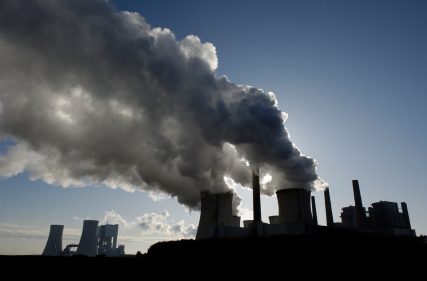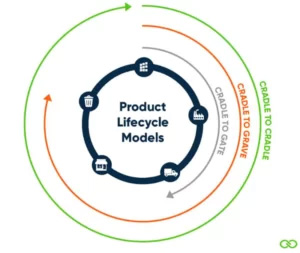Who or what is the IPCC?
The Intergovernmental Panel on Climate Change (IPCC) was jointly established in 1988 by the
World Meteorological Organization (WMO) and the United Nations Environment Programme (UNEP),
to assess in a comprehensive and transparent manner all the relevant scientific, technical,
and socioeconomic information to contribute in understanding the scientific basis of risk of human-induced climate change,
the potential impacts, and the adaptation and mitigation options. Since 1990, the IPCC has produced a series of Assessment Reports,
Special Reports, Technical Papers, methodologies, and other key documents which have since become
the standard references for policymakers and scientists concerned by global warming.
The IPCC will issue, in June 2012, a special report on ways and ideas to manage the risks associated with increased extreme weather events and climate or weather induced disasters. The special report strives to contextualise the challenge of dealing with extreme weather and climate events as an issue in governmental and local authority decision making under uncertainty, analysing responses in the context of risk management. Incidentally, Risk Management is soon to be a publically available educational and practical course from Carbon Action using ISO 31000:2009 Risk management — Principles and guidelines. ISO 31000:2009 can be applied throughout the life of an organization, and to a wide range of activities, including strategies and decisions, operations, processes, functions, projects, products, services and assets. The IPCC Special Report on Managing the Risks of Extreme Events and Disasters to Advance Climate Change Adaptation is called, for short, SREX (for special report on extreme events).
The full citation for this forthcoming report is IPCC, 2012: Managing the Risks of Extreme Events and Disasters to Advance Climate Change Adaptation.
Field, C.B.et al, Cambridge University Press, Cambridge, UK, and New York, NY, USA
To assist in grappling with the content of this report we have reproduced the key terms in Climate Change/Global Warming below:-
Climate Change: A change in the state of the climate that can be identified by changes in the mean or averafe conditions and/or the variability of its properties and that persists for an extended period, typically decades or longer. Climate change may be due to natural internal processes or external forcings, or to persistent man-made changes in the composition of the atmosphere or in land use.
Climate Extreme (extreme weather or climate event): The occurrence of a value of a weather or climate variable above (or below) a threshold value near the upper (or lower) ends of the range of observed values of the variable. For simplicity, both extreme weather events and extreme climate events are referred to collectively as ‘climate extremes.’
Exposure: The presence of people; livelihoods; environmental services and resources; infrastructure; or economic, social, or cultural assets or treasures (Pyramids, Stonehenge, in places that could be adversely affected.
Vulnerability: The propensity or predisposition to be adversely affected. Examples tajt spring to mind are Bangladesh, and Pacific Island States amongst others,
Disaster: Severe alterations in the normal functioning of a community or a society due to hazardous physical events interacting with vulnerable social conditions, leading to widespread adverse human, material, economic, or environmental effects that require immediate emergency response to satisfy critical human needs and that may require external support for recovery. An example possibly such as famine caused by crop failure due to extreme weather conditions
Disaster Risk: The likelihood over a specified time period of severe alterations in the normal functioning of a community or a society physical events interacting with vulnerable social conditions, leading to widespread adverse human, material, economic, or environmental effects that require immediate emergency response to satisfy critical human needs and that may require external support for recovery.
Disaster Risk Management: Processes for designing, implementing, and evaluating strategies, policies, and measures to improve the understanding of disaster risk, foster disaster risk reduction and transfer, and promote continuous improvement in disaster preparedness, response, and recovery practices, with the explicit purpose of increasing human security, well-being, quality of life, resilience, and sustainable development.
Adaptation: In human systems, the process of adjustment to actual or expected climate and its effects, in order to moderate harm or take advantage of beneficial opportunities. In natural systems, the process of adjustment to actual climate and its effects; human intervention may facilitate adjustment to new expected climatic conditions.
Resilience: The ability of a system (or country) and its component parts (Government, Civil Society, Businesses) to anticipate, absorb, accommodate, or recover from the effects of a hazardous event in an effective way by ensuring the preservation, restoration, or improvement of the societies’ essential basic structures and functions.
Transformation: The altering of fundamental attributes of a system (including value systems; regulatory, legislative, or bureaucratic regimes; financial institutions; and technological or biological systems).
Exposure of and vulnerability to extreme events are key determinants of disaster risk and of impacts when risk becomes reality. Again this implies less developed countries in high natural disaster prone areas are in the firing line when the global warming events become commonplace. The question is – how to respond, mitigate or avert such events. This IPCC report is an important step in opening our eyes to what needs to be done.
This IPCC report continues in the time-honoured and established scientific tradition of being replete with self-doubt about assumptions – a proof of its validity – I would suggest.
For example on flood prediction the report states “Confidence is low due to limited evidence and because the causes of regional changes are complex, although there are exceptions to this statement. There is medium confidence (based on physical reasoning) that projected increases in heavy rainfall would contribute to increases in local flooding in some catchments or regions” How can we not at least accept the bone fides of the authors?
In short – fellow earthlings – we need to act urgently.






